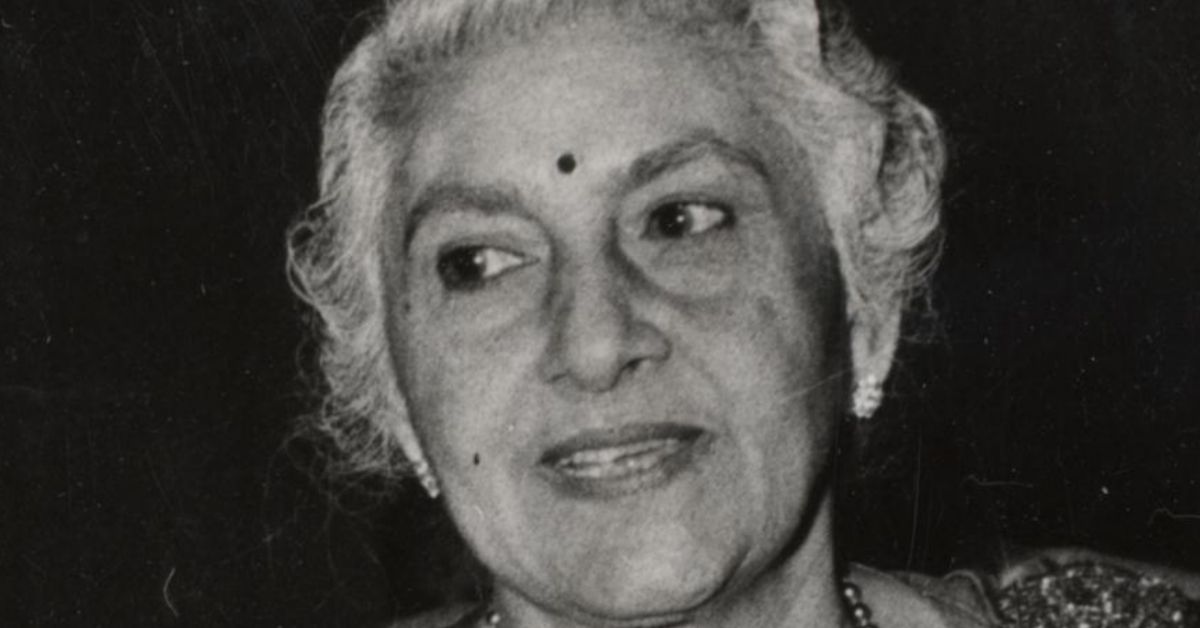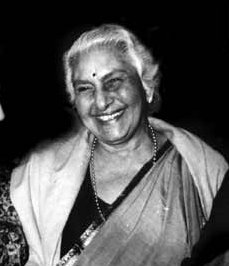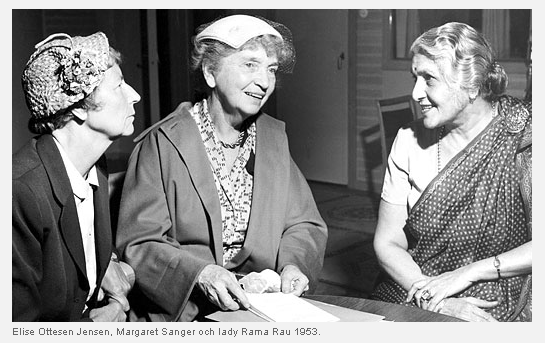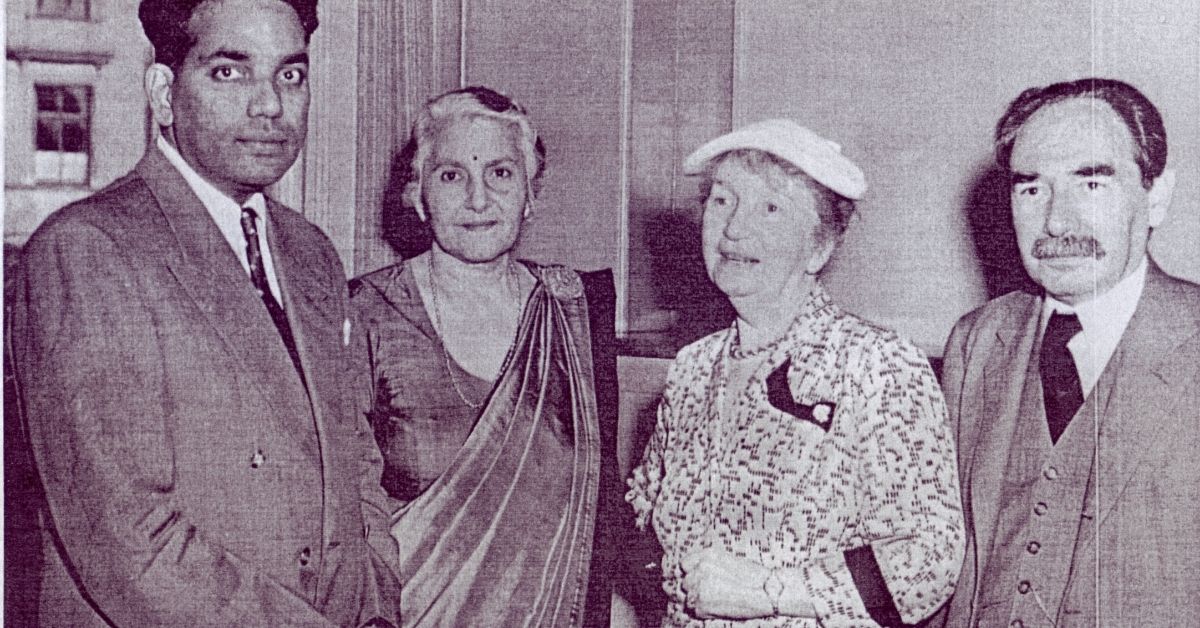When Gandhi Opposed Birth Control, This Woman Designed Our Family Planning Policy
Dhanvanthi Rama Rau was the founder of the Family Planning Association of India, co-founder and president of the International Planned Parenthood Federation, and a pioneer of women's autonomy through birth control. However, many remain unaware of her contribution to India becoming a global leader in family planning.

In 1952, India became the first country to launch a nationwide Family Planning Programme. Initially, its aim was mainly birth control and it later expanded to include mother and child health, nutrition, and family welfare in its ambit.
Years before India began leading by example, many activists in the country dedicated their lives to championing adequate family planning for a growing population like ours. But alongside, the freedom struggle was being led by conservative men, including Mohandas Karamchand Gandhi, who was against artificial contraception and birth control and of the opinion that while “sex urge is a fine and noble thing”, it existed only for the act of creation. He believed that if one does not wish to spawn children, they must practice self control.
In the archives of the London School of Economics, a letter written by Gandhi addressed to British birth control activists Edith-How Martyn and Eileen Palmer was found, detailing his firm disdain for artificial contraception. Based on her communication with him, Martyn later wrote, “Mr Gandhi will have nothing to do with birth control, he regards it as a sin, as a temptation to mankind to pander to his lower nature, as an invention of the devil to lure men and women from the path of renunciation.”
Despite the patriarchal nature in which the country and its leaders viewed sex, family planning and contraception, it would be remiss to not note the contributions of the lesser-known, or perhaps forgotten, figures in history who believed, from very early on, that it was imperative that women be freed from the shackles of forced maternity and undesired parenthood.
In articles and publications detailing the history of family planning in India, one name remains more or less missing, or finds very little detail. It is that of Dhanvanthi Rama Rau, an Indian birth control activist and founder of the Family Planning Association of India. Married to Benegal Rama Rau, the fourth governor of the RBI, and mother of acclaimed writer Santha Rama Rau, Dhanvanthi was a champion of women’s reproductive rights and the co-founder and president of the International Planned Parenthood Federation.

Who was Dhanvanthi Rama Rau?
She was born Dhanvanthi Handoo in Hubli (now in Karnataka), to a Kashmiri Brahmin household, to parents Rup Krishna Handoo, a railway officer and Bhagbhari Handoo in 1893. After finishing her schooling in Hubli, she studied in Madras’s Presidency College, before becoming one of the first Indian women to teach higher education, at Queen Mary’s College, at a time when gender roles strictly prohibited women from doing so.
She met and married her husband Benegal in Madras, and the two later travelled together with their daughters to England as part of the Simon Commission, of which Benegal was the Financial Advisor. Here, the family of four settled into a flat in London, but Dhanvanthi noted later in her memoir that in the early 1930s, securing a flat in a foreign land was much harder, owing to their race.
Dhanvanthi worked with several organisations in her early years to campaign for Indian independence. At the behest of Sarojini Naidu, she led the Indian delegation at the International Alliance of Women for Suffrage and Equal Citizenship. She also founded the Women’s Indian Association, which aimed to connect women living in both India and Britain on feminist issues.
Dhanvanthi held a strong belief in the autonomy of Indian women, which shaped much of her work through her life. Perhaps the best example of this lies in her short speech at the ‘Conference of Indian Social Evils’ organised by famed Member of British Parliament Eleanor Rathbone.

While invited to attend the conference, she found it absurd that she, as an Indian woman, was not given a platform to speak despite the fact that the conference was about her country and women like herself. She wrote in her memoir. “I asked for permission to speak, and was graciously allowed five minutes. I did not speak on any of the subjects on the agenda, and merely disputed the right of British women to arrange a conference on Indian social evils in London, when all speakers were British and many of them had never visited India. Not one of them…asked if there were any Indian women’s organisations dealing with the problems….that British women were exploring from the great and deceptive distance of 15,000 miles.”
These sentiments of the independence of Indian women from the image of being “passive” or “in need of saving” echoed in her belief that it was time to equip them with the right to choose motherhood themselves.
Women’s role in national development
In 1941, as the country inched towards independence, Dhanvanthi settled back in Bombay, where she busied herself with women’s organisations in the country. Meanwhile, she was perturbed by the neglected and dire conditions of the slums of the area. Alongside, she saw conditions in the country worsen with situations such as the Bengal Famine, and noted how despite increasing economic gaps and poverty, people continued to reproduce well beyond their means.
“When I thought over these glimpses of slum life, it became perfectly clear to me that, however much our social workers tried to improve conditions, nothing could be accomplished while unlimited numbers of children continued to be born in crowded houses where expansion was impossible,” she recalled.
Particularly after India attained independence, this issue became even more pertinent in Dhanvanthi’s mind. In 1949, she founded the Family Planning Association of India, which soon became the country’s largest non-governmental organisation working in the field of population control. She recognised that women bore the major brunt of overpopulation and depleting resources, and that birth control would help alleviate this suffering. Echoing renowned birth control activist Margaret Sanger’s sentiments, she believed that women should “bear the children that they wanted”. The organisation works to cover safe motherhood and child survival, women empowerment, male involvement and adolescent health.
The establishment of India’s family planning programme followed closely after, inspired by Dhanvanthi’s work. Moreover, the organisation became the founding member of the International Planned Parenthood Federation, highlighting the role of feminists in the global family planning movement. This came after decades of debate within the Indian nationalism movement about the causes of poverty and the role of Gandhi’s ideology of sexual continence that shaped initial ideas of citizenry. Moreover, Dhanvanthi’s efforts saw over half a million men, who did not wish to have more children, step up for voluntary sterilisation.

India’s First Five Year Plan included family planning as an important component, thanks to Dhanvanthi’s efforts. She was a notable figure in recognising women’s welfare in nation development, a model which was replicated subsequently throughout the world.
Many publications term Margaret Sanger as a pioneer of birth control, and as the woman who engaged in a heated debate with Gandhi over his regressive views on birth control. However, they fail to acknowledge that Dhanvanthi stood with her neck to neck, and helped found the international organisation that champions this cause.
While Dhanvanthi and her team’s aim was more to bring women’s reproductive rights into the ambit of state-led policies, and less to do with addressing gender inequality and class divide as a whole, she succeeded in highlighting the plight of rural women and their sexual health in the Indian government’s purview.
In addition, she worked for child marriage abolition, was president of the All-India Women’s Conference (1946-47), and a staunch supporter of the women’s suffrage movement. She received the Padma Bhushan from the Government of India in 1959 for her efforts. She passed away in 1987 due to kidney failure at the age of 94. While less-mentioned in the pages of history, Dhanvanthi’s efforts ensured that not only did India participate in the global movement for better family planning, it, in fact, helped shape it.
Edited by Yoshita Rao
If you found our stories insightful, informative, or even just enjoyable, we invite you to consider making a voluntary payment to support the work we do at The Better India. Your contribution helps us continue producing quality content that educates, inspires, and drives positive change.
Choose one of the payment options below for your contribution-
By paying for the stories you value, you directly contribute to sustaining our efforts focused on making a difference in the world. Together, let’s ensure that impactful stories continue to be told and shared, enriching lives and communities alike.
Thank you for your support. Here are some frequently asked questions you might find helpful to know why you are contributing?


This story made me
-
97
-
121
-
89
-
167













